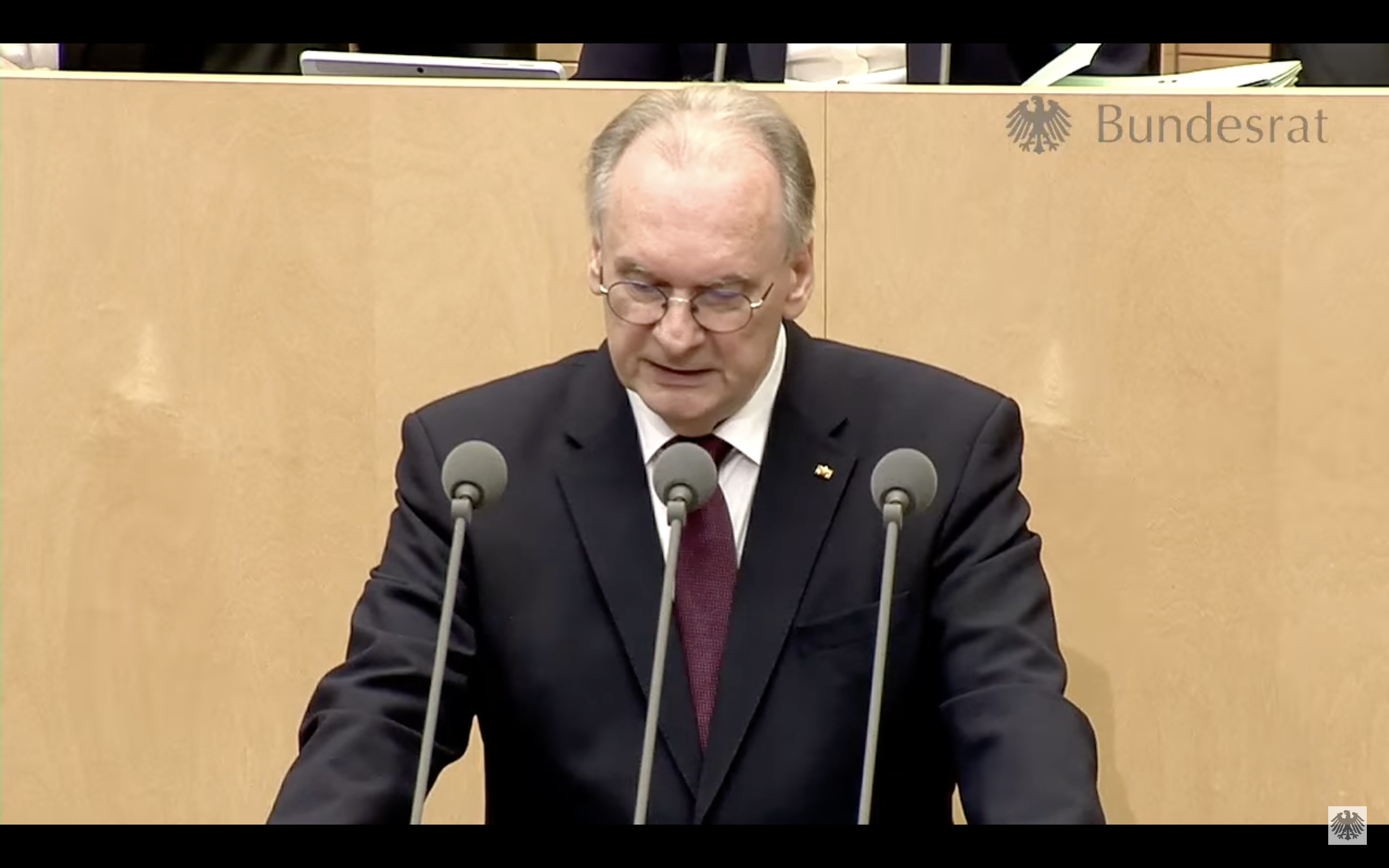Deutschland verabschiedet bahnbrechendes Cannabisgesetz: Bundesrat stimmt für CanG, das Gesetz soll am 01. April in Kraft treten
Autor: BEN STEVENS MÄRZ 22, 202 Das Geschäft mit Cannabis. International Cannabis Weekly Ausgabe 342 https://businessofcannabis.com/germany-passes-landmark-cannabis-bill-bundesrat-votes-in-favour-of-cang-with-law-set-to-come-in-on-april-01.
ARTIKEL:
Der deutsche Bundesrat hat dem CanG-Gesetzentwurf ohne Einschaltung des Vermittlungsausschusses zugestimmt, so dass das Gesetz am 1. April 2024 in Kraft treten soll.
In der vielleicht wichtigsten Abstimmung über die Cannabis-Liberalisierung in der europäischen Geschichte hat der deutsche Bundesrat heute Morgen darüber entschieden, ob er das CanG-Gesetz verabschiedet oder in den Vermittlungsausschuss schickt, von dem allgemein erwartet wurde, dass er nie zustande kommt.
Der Gesetzentwurf wird den Besitz von bis zu 25 Gramm Cannabis für den Gebrauch durch Erwachsene legalisieren. Außerdem können die Bürger bis zu drei Cannabispflanzen zu Hause anbauen und bis zu 50 Gramm Cannabisblüten auf ihrem Grundstück haben. Der Cannabisanbau in Vereinen soll ebenfalls legalisiert werden, während der öffentliche Konsum erlaubt sein wird, auch wenn es weiterhin strenge Regeln gibt, wo dies zulässig ist.
Entscheidend ist, dass mit dem Gesetzentwurf auch Cannabis von der Liste der Betäubungsmittel gestrichen wird, eine Änderung, von der weithin erwartet wird, dass sie erhebliche Auswirkungen auf den bereits florierenden medizinischen Cannabismarkt des Landes haben wird.
Es war ein langer und schwieriger Weg für das CanG, das stark verwässert, mehrfach verschoben und immer wieder bekämpft wurde.
Trotz des starken Widerstands der Mitgliedsstaaten hat die bevölkerungsreichste Nation der Europäischen Union ihre ehrgeizigen Ziele erreicht und damit den Weg für eine weltweite Cannabisreform geebnet.
Die Debatte
In der heutigen Vormittagssitzung traten mehrere engagierte Redner vor dem Bundestag auf, von denen die meisten die Bundesländer auffordern wollten, für die Einberufung eines Vermittlungsausschusses zu stimmen.
Der Ministerpräsident von Sachsen-Anhalt, Reiner Haseloff (CDU), eröffnete die Debatte und sprach sich - wenig überraschend - gegen den Gesetzentwurf aus.
Er meinte, das Gesetz würde "Menschen töten", den illegalen Markt ankurbeln und zu einer Zunahme von Verkehrsunfällen führen, weil die Menschen unter Alkoholeinfluss fahren.
Er fügte hinzu, dass der Bundesgesundheitsminister und Architekt des Gesetzentwurfs, Karl Lauterbach, die Menschen "hinters Licht führe", wenn er behaupte, dass die Einberufung eines Vermittlungsausschusses den Gesetzentwurf zu Fall bringen würde. Sachsen-Anhalt werde sich daher bei der Abstimmung enthalten.

Ähnlich aufrührerisch äußerte sich sein CDU-Kollege, der sächsische Ministerpräsident Michael Kretschmer, der Cannabis mit Crystal Meth verglich, den Gesetzentwurf als demokratiefeindlich bezeichnete und erneut ankündigte, er werde dem Gesetz nicht zustimmen.
Die bayerische Abgeordnete Judith Gerlach (CSU) wies auf die weit verbreitete Sorge hin, dass die Justiz und die Strafverfolgungsbehörden dadurch zusätzlich belastet würden. Sie fügte hinzu, dies sei eine "Pandoras Box", die im Vermittlungsausschuss gestoppt werden müsse.
Die brandenburgische Justizministerin Susanne Hoffmann sagte, dass "ihre Wut" sie dazu veranlasst habe, sich zu diesem Thema zu äußern, da sie der Meinung sei, dass der Gesetzentwurf keine Auswirkungen auf den illegalen Markt habe und der Cannabiskonsum erheblich zunehmen werde.
Der nordrhein-westfälische Justizminister erklärte, er sei zwar nicht gegen die Legalisierung, aber gegen die Amnestieklausel, weil sie die Justiz überfordern könnte. Dem schloss sich auch der Berliner Senator für Justiz und Verbraucherschutz, Dr. Felor Badenberg, an.
Herr Lauterbach lieferte das erste positive Argument für den Gesetzentwurf, indem er darauf hinwies, dass sich die Zahl der jugendlichen Cannabiskonsumenten trotz der Illegalität bereits verdoppelt habe, und fragte, ob das derzeitige System funktioniere.
"Wenn wir das nicht in den Griff bekommen, wird dies ein guter Tag für den illegalen Markt sein, da der Status quo weiterhin funktioniert und unsere Kinder ins Visier nimmt."
Der Weg zur Abstimmung
In dem Bemühen, den Gesetzentwurf aus dem Vermittlungsausschuss herauszuhalten, hat die Bundesregierung den Bundesländern Anfang der Woche ein Angebot unterbreitet, in dem sie eine Reihe wichtiger Zugeständnisse in strittigen Punkten macht.
Entscheidend ist, dass die Regierung die umstrittene Amnestieklausel beibehält, eine Maßnahme, von der viele Staaten befürchten, dass sie ihre Justizsysteme überlastet, und die der Hauptgrund dafür war, dass die Abstimmung so knapp ausfallen würde.
In der so genannten "Protokollarischen Erklärung" wurde jedoch mehr Geld für die Suchtprävention bereitgestellt, ein weiteres wichtiges Anliegen der Ländervertreter.
Damit würde das Bundesgesundheitsministerium sicherstellen, dass über das Jahr 2024 hinaus weitere 6 Millionen Euro für den Ausbau der Cannabisprävention zur Verfügung stehen.
Um die Präventionsbemühungen zu verdoppeln, versprach die Regierung außerdem, 20 Millionen Euro zur Unterstützung eines Zentrums für Präventionsarbeit zur Verfügung zu stellen, was "über die bisherigen Pläne" hinausgeht.
Es wurden weitere Änderungen an den Vorschriften für Cannabisanbauvereine vorgenommen, indem anstelle der jährlichen Inspektionen "regelmäßige Kontrollen" eingeführt wurden, um die Belastung der lokalen Behörden zu verringern.
Darüber hinaus werden "großflächige Anbaugebiete" ausgeschlossen, um zu verhindern, dass sich Cannabisvereinigungen zu kommerziellen Anbaubetrieben entwickeln, während die Auslagerung von Tätigkeiten an Dritte ebenfalls verboten wird.
Es wurde jedoch argumentiert, dass diese Versprechen nur politisch, nicht aber rechtlich bindend sind, so dass ihre Auswirkungen auf die Wahl unklar sind.
